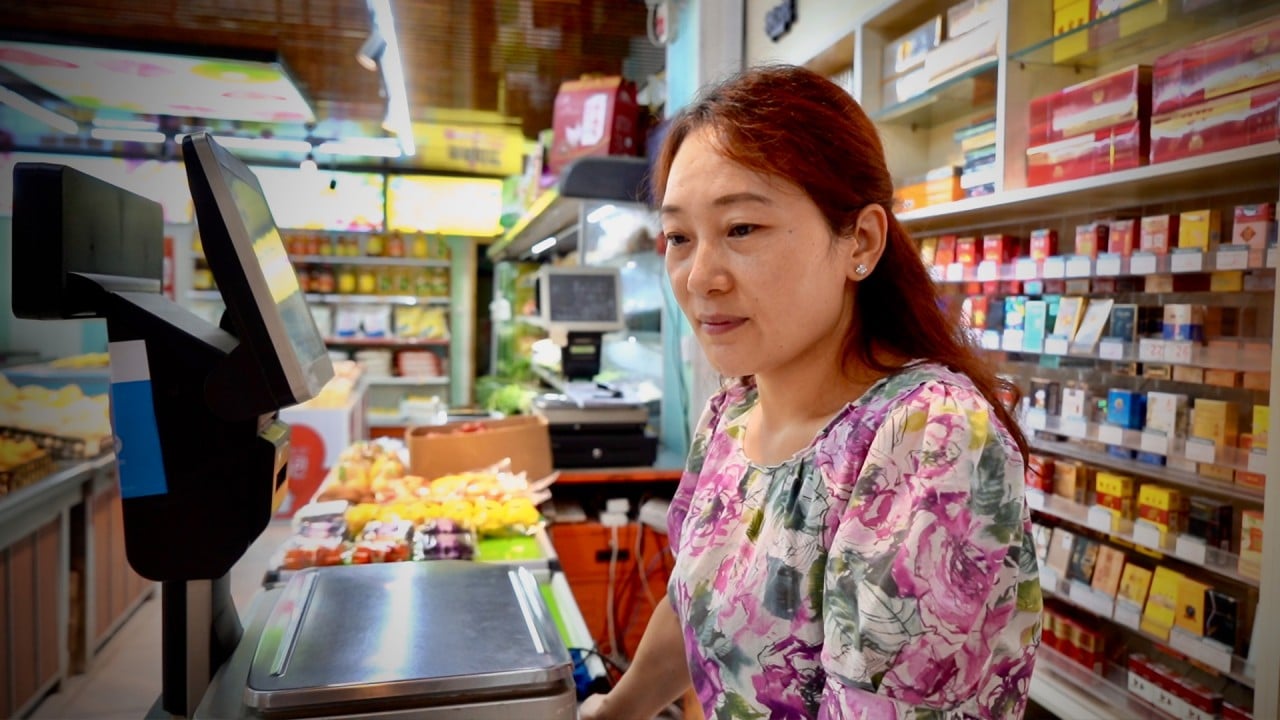
Funds are favouring Chinese tech, consumer losers, discarding energy winners in policy turnaround bets to salvage a rotten year
- Consumer and tech stocks are regaining favour on upbeat consumption while market intervention threatens gains in commodity producers
- The repositioning may help funds salvage what has so far been a forgettable year in the mainland and Hong Kong stock markets
Consumer stocks on the mainland bourses, and technology juggernauts listed in Hong Kong, are regaining favour as consumption drives recovery and a regulatory onslaught eases, according to Invesco and UBS Group. High-flying commodity producers and energy suppliers are being shunned as market intervention threatens to curb rapid gains.
Chinese consumer-staple stocks have risen 17 per cent over the past month, while raw-material producers slipped more than 7 per cent. In Hong Kong, the Hang Seng Tech Index has rebounded 13 per cent from a 15-month low with a rally in sentiment-barometer Alibaba Group Holding.
“The ‘quality growth’ consumer sector will recapture the market’s spotlight,” given its stable growth outlook and cheapened valuations, said Meng Lei, a strategist at UBS in Shanghai. “In terms of allocation, we recommend further cuts in exposure to sectors that are closely related to economic [cycles].”

02:08
China iPhone 13 launch draws crowds as phone fans eye Apple’s new handsets
The repositioning may help money managers shore up returns or salvage what has so far been a forgettable year. The CSI 300 Index of biggest stocks in Shenzhen and Shanghai has lost 4.8 per cent this year in the first annual setback since 2018. The Hang Seng Index is facing its first back-to-back annual decline since 2002.
The losses underscore the euphoric-turned-worrisome mood about China’s economic health in the past 10 months. Factory-gate inflation accelerated to a 26-year high in September, while earnings prospects for companies in upstream industries may have already peaked after the government intervened to cool prices, Guotai Junan Securities said.
UBS has raised its tactical allocation for technology stocks, saying antitrust penalties handed to Alibaba and Meituan have removed an overhang in the industry. The Swiss wealth manager and US fund manager Invesco are bullish on consumer stocks, given a pick-up in retail sales.

04:13
Small businesses in China's Xian still struggling a year after controlling Covid-19 pandemic
Overseas investors have also been loading up on Chinese consumer stocks. Their allocations have risen by 4.8 per cent above the sector weight in the benchmark index this quarter, according to Guotai Junan.
Liquor distiller Kweichow Moutai, condiment producer Foshan Haitian Flavouring and other consumer stocks are trading at an average multiple of 42 times earnings versus 48 in February, according to Bloomberg data.
Sales of high-end baijiu liquors produced by Kweichow Moutai and Wuliangye Yibin accelerated last quarter, aided by a recovery in demand and higher sales prices, according to Jefferies Group, based on channel checks.
Kweichow Moutai’s third-quarter profit growth probably accelerated 15 per cent versus 9.1 per cent in the first half, Jefferies analysts led by Kerith Chen wrote in a report earlier this month. Wuliangye’s profits were expected to grow at a sustained rate of 24 per cent, they added.
Foshan Haitian, China’s biggest condiment maker, has rebounded 36 per cent in Shanghai from a 15-month low set in September. The firm raised its selling prices by as much as 7 per cent from last week, covering about 80 per cent of its products, Jefferies added.

09:40
Tightened regulations among key trends shaping China’s internet in 2021
“We do expect consumer sentiment and confidence to rebound by mid-2022 once the real estate sector stabilises and China’s pandemic health policy evolves from its rapid vaccines roll-out,” said David Chao, a strategist in Hong Kong at Invesco.
Meanwhile, a few signs are fanning market optimism that China’s regulatory crackdown on the tech sector is ending. Alibaba, the owner of this newspaper, last week won rare praise from the Communist Party’s mouthpiece People’s Daily for developing its in-house server chip.
In a Politburo meeting chaired by Xi Jinping last week, the party boss emphasised the importance of the digital economy to the nation, and the need to balance regulating and promoting the tech industry.
At the same time, policymakers are doing more to rein in factory-gate inflation. The government pledged last week to intervene in the market to stem fuel costs, sending coal futures and related stocks tumbling.
“Looking to the next one to two quarters, economic growth will moderate and producer prices will probably peak,” said Zhu Bin, a strategist at Southwest Securities. “Investors need to closely watch those companies with sustainable growth and earnings growth that can match valuations, such as consumer and health care stocks.”

